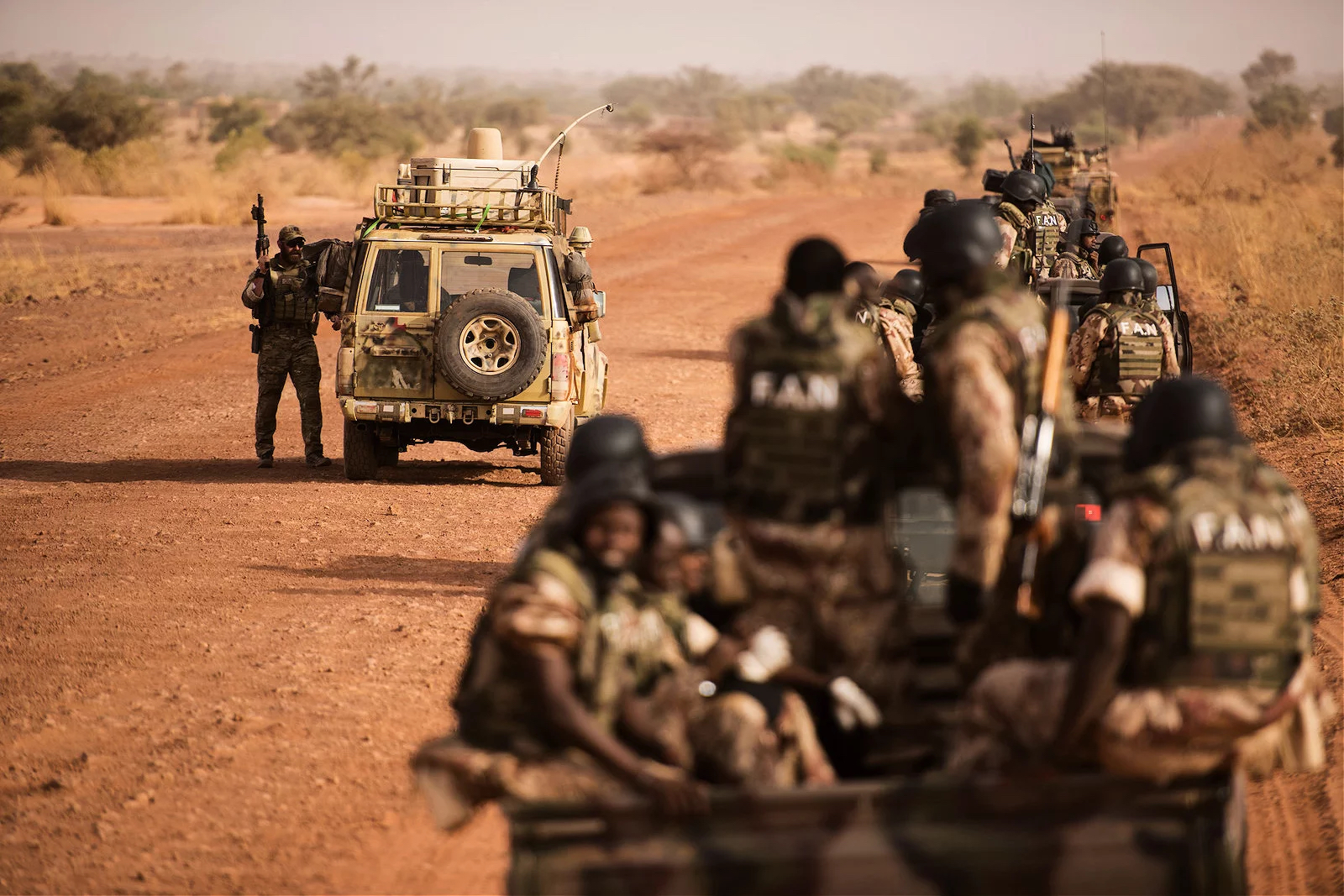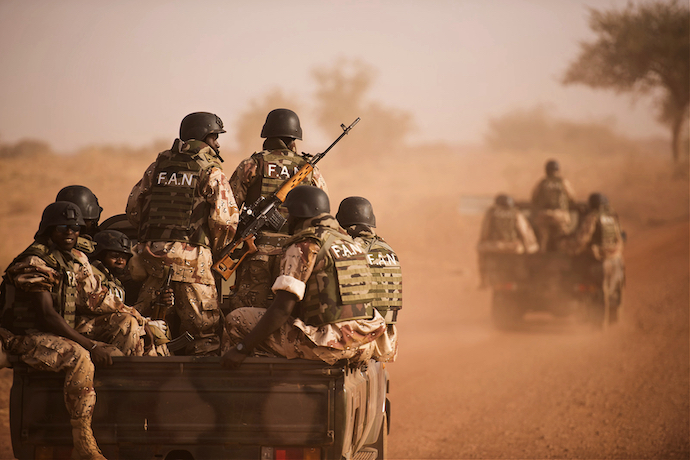
Africa’s Sahel Set to Become a Security Headache
The term “terrorism” is often immediately associated with the Levant region in Western Asia, commonly known as the Middle East. This association is hardly surprising given the disproportionate focus that Western media places on terrorism within that particular region. However, the landscape of global terrorism is shifting. In recent years, the focal point has quietly moved to Africa—more specifically to the countries of West Africa, the Sahel, and the Lake Chad Basin regions. Mali, Burkina Faso, Niger, Nigeria, Chad, and Cameroon serve as prime hotspots for terrorist operations. Alarmingly, 48 percent of all terrorism-related fatalities worldwide in 2021 occurred in West Africa and the Sahel. In 2022 alone, Africa witnessed 7,816 deaths attributed to terrorism. Despite this rapid escalation in terrorist activity, media coverage remains noticeably limited.
The escalation of terrorism in the Sahel region can be traced back to the fall of Libya in 2011, an event that facilitated the flow of arms to terrorist cells affiliated with the Islamic State and Al-Qaeda in countries such as Mali and Burkina Faso. Over the past dozen or so years, these terror groups have ceaselessly capitalized on the regional instability, further weakening states that were already fragile. Recently, a series of coups and attempted coups in Burkina Faso, Chad, Mali, Sudan, Guinea, and most recently, Niger, have directly correlated with the escalating insecurity in the region, fueled by the spread of terrorism. The coup in Niger on July 26 marked the ninth in a string of coups in West Africa. According to the coup leaders, their actions were a response to the deteriorating security situation and the state’s insufficient action against jihadist threats—a rationale similarly echoed by coup leaders in neighboring states.
The recent coup in Niger—a country once considered a vital Western ally in the fight against extremism and the last standing democratic state in the Sahel—serves only to deteriorate the already complex challenges of counter-terrorism operations. Western governments, along with the United Nations and the African Union, have presented Nigerien coup leaders with a stark ultimatum: either reinstate civilian rule or confront a battery of sanctions. In response, the French government has suspended its budgetary support, and the United States has halted all security operations within Niger.

Consequently, Niger and other countries in similar predicaments have turned toward Russia’s Wagner Group, a private military company notorious for human rights abuses and linked to Russian President Vladimir Putin, to plug the security gaps left by withdrawing Western powers. Concurrently, terrorist organizations are seizing the opportunity to exploit these security vulnerabilities, further expanding their ranks and operational capacities. Further heightening tensions, the West African regional bloc ECOWAS has floated the idea of staging a military intervention to reinstate democratically elected President Mohamed Bazoum.
This confluence of destabilizing elements—both from within and outside the Sahel—serves to intensify an already dire humanitarian situation and prolong political instability. The presence of entities like the Wagner Group, along with recent coups, seems to have initiated a seemingly endless cycle of escalating terrorist activities. The immediate consequences include acute food insecurity and a spike in human displacement, among other urgent issues. As foreign aid and support wane, the socioeconomic conditions in countries like Niger, Mali, and the broader Sahel region continue to deteriorate.
One of the primary factors enabling the rapid growth of terrorism within the region is its worsening socioeconomic condition. High unemployment rates, pervasive hunger, inadequate access to basic services, and a volatile political environment compel civilians to resort to desperate measures to fulfill basic needs. This dire socioeconomic landscape provides fertile ground for terrorist organizations, simplifying their recruitment processes. Terrorist groups can now more easily attract new members by offering them basic necessities and protection—things that local governments have conspicuously failed to provide. Data from the United Nations indicates that 25 percent of new terrorist recruits were unemployed at the time of their recruitment, and nearly 40 percent joined to meet basic needs. For instance, Boko Haram, the primary terrorist organization in Nigeria, actively recruits students from impoverished families in the economically disadvantaged regions of northern Nigeria.
In addition to exploiting state insecurity for recruitment, terrorist groups are leveraging political instability to financially support their organizations through illegal means. Activities include drug and mineral trafficking, organizing kidnappings for ransom, and other illicit endeavors. These activities are notably easier to conduct during periods of weak governance and political crises. The combination of already dire socioeconomic conditions and the recent spate of coups provide fertile ground for the alarming growth rate of terrorism in the Sahel. And as the Wagner Group’s influence grows, the conditions in affected countries are expected to deteriorate further.
Efforts to address terrorism in the region have historically been focused on strengthening security, largely through military training and aid from Western governments. For example, the annual Flintlock event—held this year in Ghana and Ivory Coast—is a U.S.-led military special training exercise aimed at helping West African security forces combat extremist violence. Despite these efforts, a purely military solution has proven ineffective. These security-centric responses do not address the underlying socioeconomic factors driving terrorism and related instability in the region. Governments and organizations must allocate more resources to tackle the root causes of extremist violence and design counterterrorism strategies specific to the Sahel.
Successfully combating the spread of terrorism in the Sahel will require a community-centric, bottom-up approach. Counter-terrorism strategies must also address socioeconomic conditions and local needs, rather than solely focusing on security measures. Proven models exist, such as those in Rwanda, Kenya, and the Lake Chad Basin, which have successfully implemented programs that emphasize community rebuilding and mental health. The international law components of initiatives like Flintlock, which aim to promote ethical warfare, are commendable but ultimately insufficient. They avoid addressing the root issues contributing to the Sahel’s perpetual cycle of crisis.
As economic sanctions are imposed to hold coup leaders accountable, the unintended consequence is further impoverishment of already struggling communities, increasing the susceptibility to extremist ideologies. A delicate balance must be achieved between security-focused initiatives and development-centric approaches to counter-terrorism, as well as between punitive actions and protecting civilian life.
The Sahel crisis is not just an African issue; it’s a global problem with worldwide implications. Failure to attend to the unique socioeconomic and political dynamics of the Sahel can result in the spread of extremist ideologies beyond its borders. Now is the time for a paradigm shift in how the international community approaches counter-terrorism in the region.

